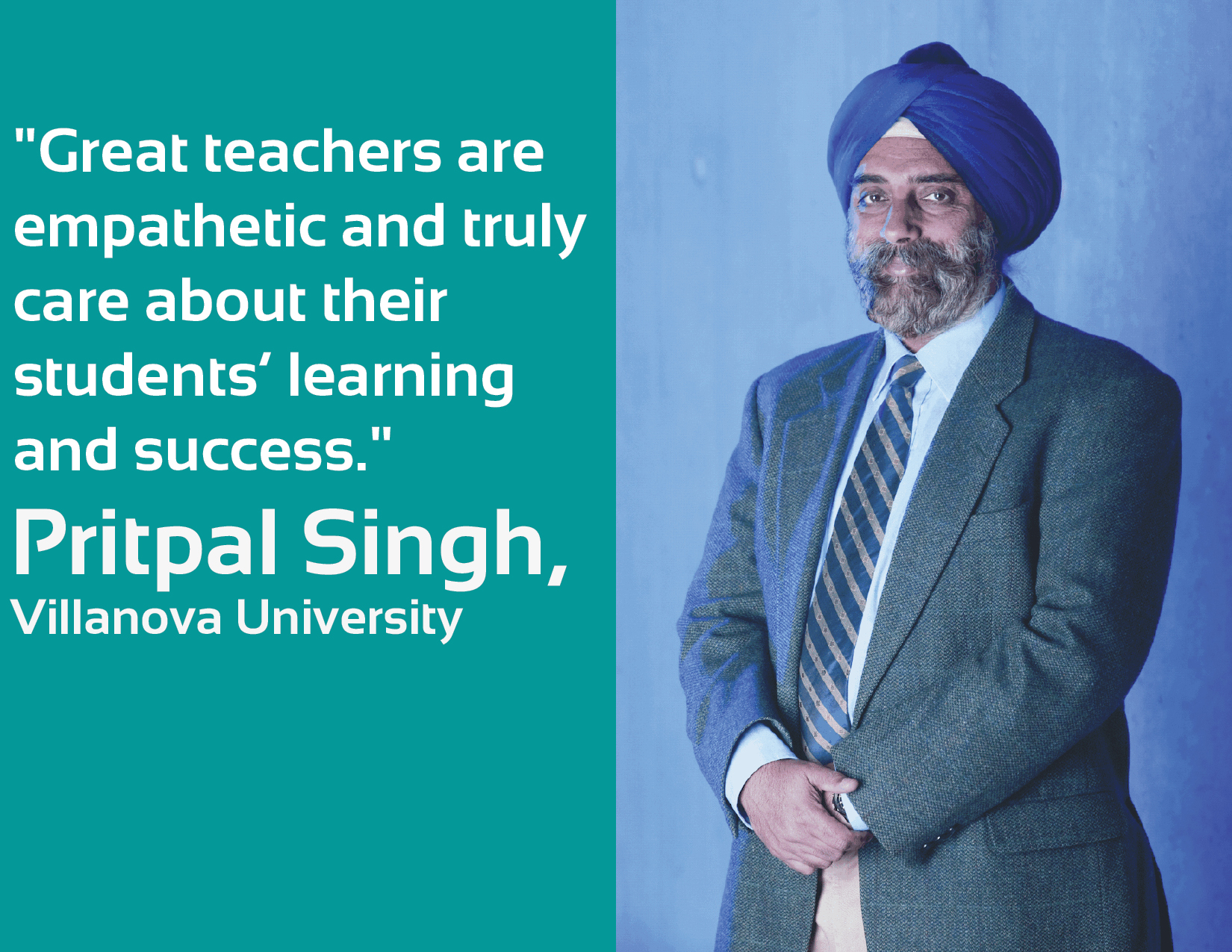
This week we continue our series highlighting educators within the VentureWell network that are doing good work—faculty members that are challenging norms in higher education and inspiring students to impact the world through invention.
This month’s faculty spotlight is Pritpal Singh, Professor and Chair of the Department of Electrical and Computer Engineering at Villanova University. Pritpal is a veteran of VentureWell programming, having received grants to develop sustainable technologies and improve healthcare for rural Nicaraguans and to work on clean water and energy enterprises in the Philippines. He is a regular attendee at OPEN, our annual conference. Don’t miss Pritpal’s panel, From Project to Lab to Startup: Engaging universities with UNICEF to design innovative technologies for entrepreneurial implementation in the field, taking place March 25 at our upcoming conference in Washington, D.C.
How did you get interested in teaching entrepreneurship?
I‘ve always been entrepreneurially minded and have started several of my own businesses to translate the results of my research into commercial technologies. I also ran my own solar energy business in India for a few years and have been running my own consulting business for many years. My interest in teaching entrepreneurship stems from my wish to excite my students to develop their own innovative ideas and technologies and to consider starting their own entrepreneurial ventures to commercialize their innovations. Running your own business is very rewarding and the path is an adventure, full of ups and downs. I’m motivated to provide students the opportunity to experience this adventure for themselves and enjoy the thrills of the ride.
What is your favorite thing about teaching?
I have had the pleasure of teaching entrepreneurship to students and professionals in the US and in a few developing countries, including some of the poorest students in the world. Inspiring students and seeing them gain confidence in their abilities to develop entrepreneurial ventures and guiding them along their journeys are my favorite aspects of teaching entrepreneurship to students/professionals at all levels.
What is your least favorite thing about teaching?
As much as I love to inspire and mentor students, I wish I had more time to engage in this type of activity. With all my other responsibilities, I feel that I just don’t have enough time to support students in their entrepreneurial ventures. So my least favorite thing about teaching is the lack of time to actually teach.
Where would you like to see the field of entrepreneurship in five years?
One of my particular passions is working with poor people in developing world communities to help them start entrepreneurial ventures. Following the inspiration of Paul Polak and others and working directly with UNICEF, I feel that business ventures started in developing countries have the potential to transform the lives of the poor.
I have seen new trends in recent years among several international non-governmental organizations to help local communities develop innovative, local solutions to local problems. Coupling this type of initiative with entrepreneurial venture development support can help people in poverty rise out of their dire situations. Over the next five years, I would like to see more emphasis in the field of entrepreneurship on providing poor people with the resources and mentoring support needed to help them create their own entrepreneurial ventures and improve their lives through local economic development.
What traits make for great teachers, advisors or mentors?
Great teachers, advisors and mentors are passionate about their subjects, so much so that they inspire their students. They have the ability to connect with their students and get them excited about the subject they’re studying. They also have deep knowledge in their field and are eager to share this knowledge. Finally, great teachers are empathetic and truly care about their students’ learning and success.
What books on entrepreneurship and innovation have you been reading lately?
I read two books recently related to entrepreneurship, Grit by Angela Duckworth and Curious by Ian Leslie. Both are excellent books and give great information regarding personal traits that are important to entrepreneurial success. I’m presently reading Blockchain Revolution by Don and Alex Tapscott. I see blockchain as a new disruptive technology that is going to make major changes to the way financial and other transactions will be carried out in the future.
What’s your most useful classroom activity or assignment?
One classroom activity I’ve used several times is the envelope exercise developed by Tina Seelig at Stanford University. In this exercise, the students are asked to plan for a two-hour activity to increase an initial, unknown investment provided to them in an envelope. The money in the envelope is very small, typically $2 when I do the exercise in the US. The students are usually surprised at how little money is there. Yet, every time I’ve done this exercise, the students have increased the investment money provided to them. The exercise helps students realize how easy it is for them to make money. I was particularly delighted when the students at the Bluefields, Indian and Caribbean University in Nicaragua came to this realization. These students are generally from relatively poor communities and lack confidence in their ability to make money. When they performed this exercise and realized how easily they could make money, it was really eye-opening and thrilling for them. It was also a very rewarding experience for me.